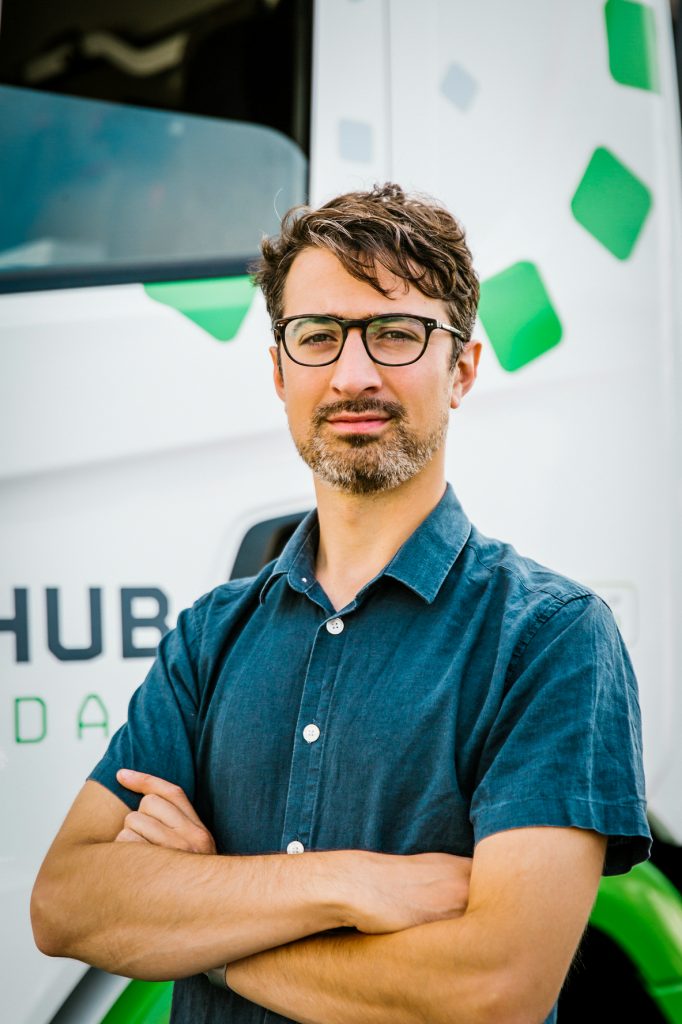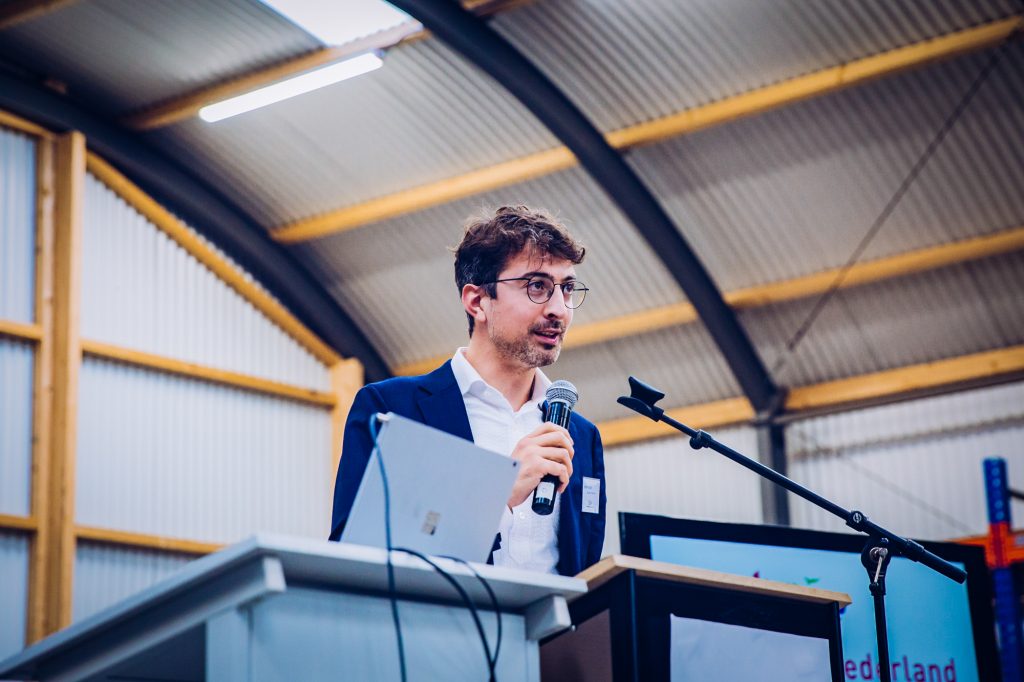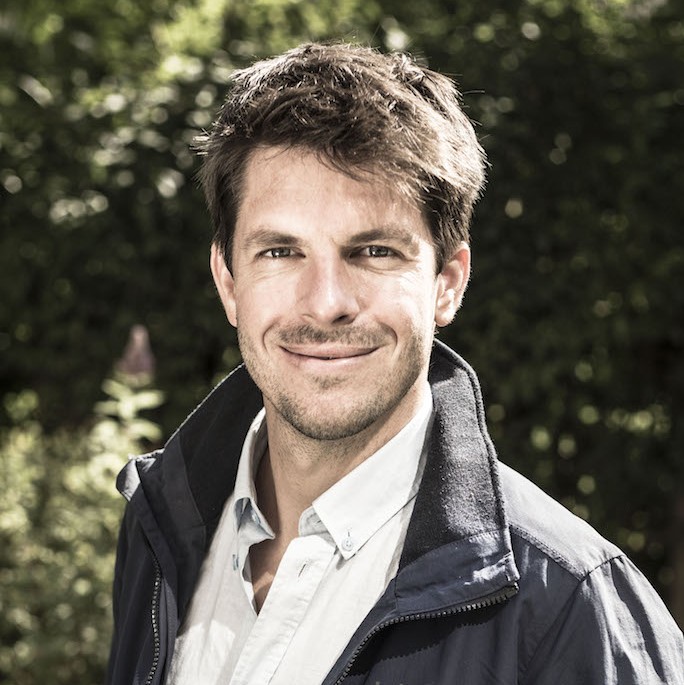Ömer Arslan is Director of Operations at Bouwhub Amsterdam, Amsterdam’s first for profit construction consolidation centre. Find out how he turned a forklift on a piece of land into a fully fledged construction logistics hub.
“Should I Quit My Job?”
An industrial engineer by training, Ömer Arslan had a neat job as process technologist on minimizing CO2 emissions in hot-metal production. He was working on the probably most recyclable product in the world, and still, he recalls with a sigh, “it’s just very far away from people’s feelings. I really felt like I needed to work on something closer to home. Something people could better relate to.”
Meanwhile, as he pondered his future, in the port of Amsterdam a foundation piling company was making an unusual plan. It had just been given a fallow open space of 8,000 square metres on the condition that it be used to serve the city of Amsterdam. How to make best use of it? Inspired by research showing the benefits of taking lorries off our streets, the piling company teamed up with a transportation business: the Bouwhub Amsterdam was founded.
Their paths would cross eventually: It was Ömer who grabbed the vacant position as Bouwhub operating manager – a seriously daunting challenge, he would soon find out. “A lot of people think that we were founded or are subsidized by the city of Amsterdam or by the port. That’s not the case at all. This is a private company. It was built from scratch,” Ömer explains.
Much More Than a Place to Store Materials
As the first employee, he remembers, you’re like the cook-general: “I worked on the site, literally building up the company physically as well, like the fences, the lighting, the camera systems, the warehouse, working on the forklift, implementing the IT system”. 24/7.
Focus on IT early on to make visible to anybody what happens at the construction site and beyond.

There were great doubts, too, admits Ömer, about adding an extra step into the construction process: “If you have prefabricated walls you don’t need an intermediate step but plan the process without a bouwhub.” With modular construction booming, turning that open port space into a profitable business was anything but a walk in the park.
Luckily, such worries faded when ever more suppliers started using the hub. It’s precisely because the Bouwhub is not a construction company, but a white label, that “we can have different companies store their material with us. They may not like it. But competitors in the construction industry would not even be willing to do this – to share their data,” knows Ömer.
And soon the hub would turn into much more than just a space for storing materials. Ömer and his team quickly became logistics pundits, understanding that a consolidation centre was not an end in itself. Nor was it meant to serve suppliers: “It’s a tool to serve the construction site, nothing else!”
Today each project has an expert overseeing all the logistics, which significantly reduces the ‘firefighting’ at the site. Importantly, and underestimated by developers, it increases overall satisfaction among all parties involved, including residents.
Another point proved advantageous for the centre. Co-founded by a transportation company, the hub itself doesn’t need to own trucks. Rather than buying new assets, it cleverly reassembles what’s already there. “You don’t need to own much stuff to run a hub. Concentrate on managing material flows and focus on IT early on to make visible to anybody what happens at the construction site and beyond,” Ömer emphatically sums up his key learning.

Which doesn’t mean that all construction companies like to use an external logistics solution. Some don’t. Ömer and his team so had to witness a nearby office tower being erected without their services. Even though he believes that a collaboration would have benefitted all, he knows the construction industry too well to be surprised: “It’s rather conservative. Project leaders either need to be convinced of the benefits, or forced by authorities into looking for solutions.”
How to Make More Constructors Use the Hub
Big construction companies typically decide to have logistics as internal “side projects”, as so-called cost centers, mainly to keep full control over supply chains. A wrong decision, Ömer believes, as these often temporary single-site solutions misunderstand a hub’s purpose and its value for the city. Instead of trying to control the supply chain, construction companies “should have logistics on a corporate level where you can really see the benefits”, he recommends with a smile: “Then they will naturally turn to third party solutions.” It certainly seems as if he made a right decision to quit his job and go for the new challenge.


